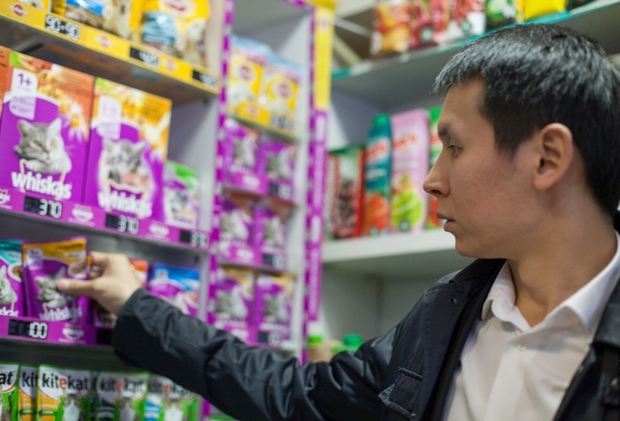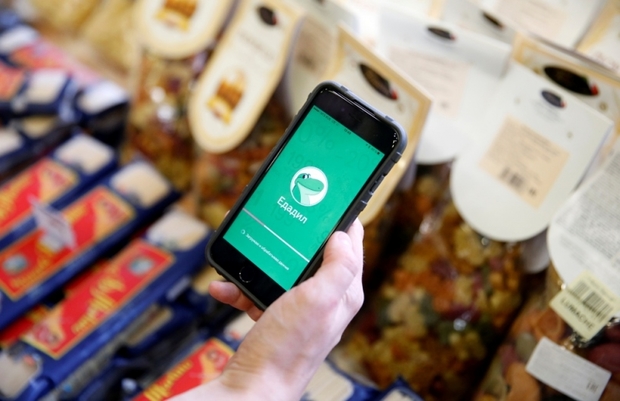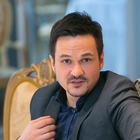The habit of crisis: to go to discount stores more often, to look for discounts and products for pets
The Russians have accepted the new reality and they are learning how not to survive in it but to live
The consulting company GfK has published the study ''The Russian consumer — 2017. The time of hope''. The experts have good news for the representatives of food retail and fast food networks. Read more in the article of Realnoe Vremya.
''War is was…''
The data published by GfK suggests that people no longer perceive the crisis as a temporary phenomenon. Compatriots seem resigned to the new reality and making such a conclusion: crisis is crisis, but life goes on.
The relevance of the saying ''War is war, but lunch should be on time'' has been confirmed by the figures on the dynamics of incomes. Thus, according to GfK, last year real incomes of Russians decreased more rapidly than even at the beginning of the crisis. At the end of 2016, they fell by 5.1% compared to the previous year and by 13.5% compared to pre-crisis 2013. At the same time, the revenues are falling faster than other key macroeconomic indicators: inflation in 2016 decreased almost twofold; GDP, industrial production and retail trade turnover were falling slower than a year before.
The fact that the crisis is perceived by Russians as something permanent is seen from the data on the ''speed'' of the habituation of citizens to the new reality. So, at the end of the first quarter of last year, more than half of the respondents of GfK (56%) stated that the crisis affected them personally. By the end of the year, they were already 48%. Only every fourth citizen followed the fate of the national currency in December 2016, while in February 2016, 55% of Russians followed the ruble rate.

Apparently, people don't perceive the refusal from the purchase as something dictated by the crisis, otherwise how else to explain the following figures? Last year, as well as in 2015, two thirds of the population declared the readiness to abandon the purchase of durable goods, not only expensive ones, such as car, furniture or jewelry — they also can postpone the updating of wardrobe or the repairs in the apartment. Moreover, the buyer has revised their attitude towards urgent expenditures, primarily to the purchase of food, its consumption dipped by 1.7%. The consumption of not only meat, fish and dairy products decreased, but even of grocery and bakery products.
The only categories of goods, for which demand has grown, have become the means of personal care (plus 0.%), pharmaceuticals (6%) and the ''champion'' of the list — pet products (plus 10.7%).
Now some good news. According to the company, those for whom the price has become decisive in choosing goods have become less by 2%. A 4% decrease is in the number of buyers who visit several shops in search of lower prices. At the same time, there is a 3% increase of those, for whom the atmosphere of the store is more important than possible discounts. The percentage of customers-innovators, seeking and acquiring new products, has increased by 2 p. p.
GfK experts state that consumers who are willing to pay for quality have become more. In particular, there is a 5% increase is in the number of followers of more expensive bioproducts compared to traditional ones. Finally, there has been a 3% increase in the number of visitors to fast food outlets.
GfK admit — yes, the changes are not so radical. However, even such modest progress evidence a gradual return of the Russians to their pre-crisis habits, and it certainly should serve as good news for the consumer sector.

New settings
In their study, GfK gives a list of the habits of the Russians that they acquired during the crisis.
First, they buy only the most necessary. In the first place, it belongs to the category of FMCG (fast moving consumer goods). The frequency of such purchases in the past year increased by 4.6%. Besides, there was a 2% increase in the number of those who buy solely on a predetermined list.
Second, people are looking for the best prices and promotions. According to the results of the analysis, in some categories, the share of goods sold on promotion reaches 40%. Including through the new habit of Russians, the channels, having the ability to offer goods cheaper, significantly grew their turnover: discount stores rose by 15.6%, hypermarkets — by 5.8%. The champion of growth among sales channels has become the Internet: in 2015-2016 the e-commerce audience grew twofold.
Finally, people are not just looking for the best prices, they are increasingly using mobile channels. GfK drew attention to the growing audience of mobile applications for shopping, including the most popular Chinese online trading platform. The mobile apps of Perekrestok network and the promotions aggregator Edadeal have entered the top 500 most popular mobile apps.
-
-

Aidar Bulatov GC Bulatov Group
-
The restaurateurs felt fundamental changes in the preferences at the beginning of the crisis, at the junction of the 2014-2015. Then the premium segment dipped significantly, revenues of the food service establishments in the medium price segment decreased by 15-20%. However, the democratic places, by contrast, rose by the same 15-20%. Now the situation has stabilized, while the democratic sector continues to grow.
Implementing new projects, the restaurant holdings come primarily from average bill, while trying to preserve the quality of food, service and atmosphere of the places. The average bell has changed since the pre-crisis 900-1100 rubles to 750-900 rubles.
However, despite the fact that people due to falling incomes have become spending less on catering, there is a particular culture of consumption. Interesting formats are being opened not only in Moscow but in the regions. In Kazan, for example, the places of Indian and Thai cuisines are being opened, vegetarian restaurants, etc. The growth of consumer culture gives restaurateurs some hope for the future development of the industry.
-
-
-

Irek Galiev The bakery chain Zhar Svezhar
-
We have felt neither decline in average bill nor decrease (as well as the growth) in the number of buyers. However, consumer preferences have shifted towards cheaper pastries, people have become buying something that costs less than 30 rubles, and accordingly, less what is worth more than 30 rubles. The continuing high level of competition on our market indicates that the demand for bakery products remains high, people continue to buy fresh pastries, however, their preferences are changing.
-
-
-

Aleksandr Ivanov Chairman of the National Association of Remote Trade
-
The representatives of distant trade highlight the detail, in my opinion, eloquently showing that people have become more careful when considering what to buy: over the past year the number of returns or of non-payment upon receipt significantly decreased. Perhaps, this can be''attributed to'' increased quality logistics. However, there is, of course, the share of that there have become less spontaneous purchases, and it is significant.
-